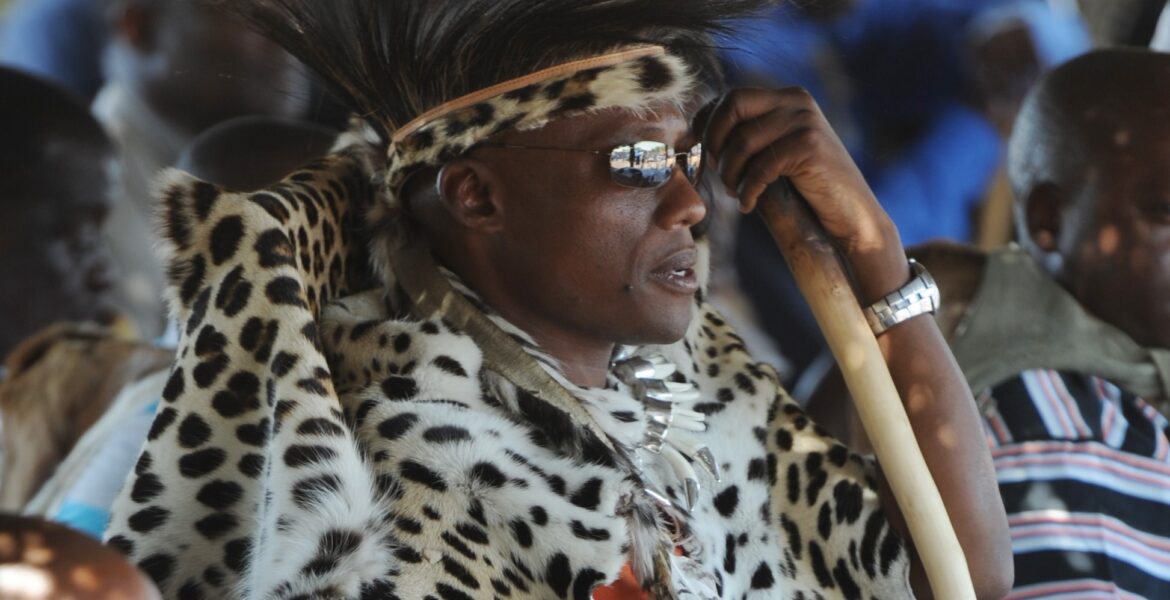“War is rich old men protecting their property by sending middle class and lower class young men off to die. It always has been.” George Carlin.
Dumela Kgosikgolo.
Jesus Christ’s crucifixion is an interesting allegory. From the last supper with His disciples, right through the point of His sham trial to the promise of salvation captured by His last words, “It is finished,” as He gave up the ghost. But the most beautiful part of this tumultuous night is the conversation he is having with the thieves that are flanking Him as He goes through an agonising transition between life and death. He is frustrated, almost admitting that He had been tricked to die for a people not worthy of as much as a drop of His blood. He calls out, “Eli Eli Lama Sabachthani,” which is traditionally translated to “My God, My God, why have You forsaken me?’
Nelson Leteane, in his Digging Tswana Roots column in Mmegi several years ago, submitted that the proper translation of that passage should be (paraphrased) “BaIlu lo se ba tane” – Mmegi Online Thursday, April 13, 2017. Though I will not extrapound on Leteane’s translation, I find it to be the one closest to the context of the moment. Tragic!
But it is the brief conversation that ensues between the three that is very interesting. Luke 23:39-43 King James Version:
39 And one of the malefactors which were hanged railed on him, saying, If thou be Christ, save thyself and us.
40 But the other answering rebuked him, saying, Dost not thou fear God, seeing thou art in the same condemnation?
41 And we indeed justly; for we receive the due reward of our deeds: but this man hath done nothing amiss.
42 And he said unto Jesus, Lord, remember me when thou comest into thy kingdom.
43 And Jesus said unto him, Verily I say unto thee, Today shalt thou be with me in paradise.
Basically Jesus is having a conversation with His past and future. The thief to His right symbolises the past, which mocks and belittles the present. You cannot undo it. It laughs at your powerlessness. But then the thief to His left is optimistic just as the future is. It beckons all of us with promises of golden streets and lions that eat grass under an endless rainbow. It is such a brief moment in the Bible, but internalising it and realising that the Son of Man was reckoning with His life, going through His exploits on earth while at the same time embracing the blanket of darkness that lay ahead of Him, you begin to see why He is the perfect Archetypal Man.
Even as the system defeated His body, he embraced paradise as an escape for His Spirit. Kgosikgolo Kgafela, you fought hard, and we were all witnesses to your courage. You made sense to many people other than your people. We empathised with your cause. There were many mistakes on both sides and many will be irreversible. We will never know to what extent since the court was never given the opportunity to complete the process of conflict resolution, if at all.
Your cause for the call of a reviewed constitution was/is noble. The atrocities that you articulate even in your books are real. They happened. They cannot be denied. But like the thief to the right flank of Jesus, the past is mocking you. All of us. We are powerless against it as we cannot travel back to change it. Trying to do so is like starring into a bottomless pit of snakes and Friedrich Nietzsche warns to not gaze into it for too long, lest the abyss gazes also into you. And we do not want that, is it not so Kgosikgolo Kgafela? Not when the future is within grasp, promising golden roads and an endless rainbow over lions eating grass, right?
Today, there are people whose tribe is Batswana and they have swallowed the Kool-Aid that as Batswana they belong in any part of the country under the protection of the constitution. They are innocent souls whose fathers were robbed the same way you were. Today the wealth of their fathers is under the control of their bo-Rakgadi and bo-Malome. Many of the cases over inheritance confirm this and it all emanates from the turmoil that befell Africa from that infamous Berlin Conference hosted by Otto von Bismarck that Saturday November 15 of 1884. Words will never capture the true cost of this carnage.
But if diplomacy and trade could not resolve the past, war will certainly not win either. Unless those who wage it want to build their thrones over skulls of the innocent, mishandling the current transition Botswana is undergoing will be beyond catastrophic. It will be the greatest betrayal of those who preferred to dine with Jesus in Paradise having been drawn by the promise of freedom from the past. And yes, the past needed escaping for a majority of them.
I wrote this letter in the language you understand as you hang on Golgotha, the Place of the Skulls. My hope is that as your spirit agonises, you would rather use your power to reach out to former President Ian Khama Seretse Khama and offer to be a broker between him and his successor, Mokgweetsi Masisi. Unless you want to tell the youth of Botswana to rather cry for themselves and for their children. In his book, Man’s Search for Meaning, Viktor Frankl said, “Since Auschwitz we know what man is capable of. And since Hiroshima we know what is at stake.” After all, Aleksandr Solzhnitsyn in his book The Gulag Archipelago said, “Nothing is easier than stamping your foot and shouting: ‘That’s mine!’”
Yours simcerely,
- Gabriel Rasekgwatshe
*K. Gabriel Rasengwatshe is the Convener of Action for Jobs but writes here in his personal capacity.

